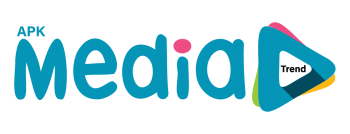Language is a crucial tool for toddlers as they begin to interact with the world around them, making it essential to nurture their communication skills early on. Engaging in language games offers a fun and effective way to enhance vocabulary development and foster effective communication. For parents considering nutritional support for their children’s development, understanding the Horlicks age limit ensures that the right products are selected to complement their toddler’s diet. Language games not only provide educational value but also help build social skills and boost confidence in expressing thoughts and feelings.
Encouraging Vocabulary Growth Through Play
One powerful method to encourage vocabulary growth is through playful activities that stimulate a child’s curiosity and imagination. Simple games such as rhyming, where children repeat words that sound similar, can enhance phonemic awareness, which is critical for reading skills later on. Additionally, interactive storytelling can captivate a toddler’s attention while introducing them to new words and concepts. Through these activities, toddlers learn to associate meanings with words, enriching their vocabulary naturally and effectively.
The Role of Repetition and Reinforcement
Repetition is key in learning, especially for toddlers. Language games that incorporate repetitive phrases or songs can solidify vocabulary retention. For instance, playing games that involve matching words with pictures can help reinforce word meanings and create lasting connections. Practicing these games consistently can aid in transitioning new vocabulary into everyday conversation, encouraging toddlers to use their expanding language skills confidently.
Social Interaction and Communication Skills
Engaging in language games also enhances social interaction among toddlers. Group activities foster teamwork and communication, where children learn to listen to each other and respond appropriately. This practice not only builds their vocabulary but also teaches essential turn-taking and conversational skills. Encouraging toddlers to express themselves in a group setting aids in mitigating shyness and promotes a sense of community and belonging.
Stimulating Cognitive Development
Language games are not just about words; they also stimulate cognitive development. Activities that involve problem-solving and critical thinking, games like word puzzles or guessing, sharpen a toddler’s mental abilities. These engaging experiences propel their analytical thinking and creativity, all while they enjoy learning new vocabulary. By linking words with concepts in a playful manner, toddlers begin to grasp how language functions and expand their understanding of the world.
Conclusion
In conclusion, seamlessly integrating language games into a toddler’s daily routine offers significant benefits, equipping them with essential communication skills. These games not only foster vocabulary expansion and social skills but also contribute to cognitive development, all while making learning fun and engaging. For parents looking to further enhance their child’s development, exploring additional creative and enjoyable activities can be highly beneficial. By incorporating language-based play into their routine, caregivers can create a nurturing linguistic environment that helps toddlers grow into confident communicators. For more ideas on engaging your toddler, read this blog.
Frequently Asked Questions
1. What age is suitable for introducing language games?
Language games can start as early as toddlerhood, around two years old, when children begin to develop their language skills.
2. How often should language games be played?
Consistency is key; engaging in language games a few times a week can yield significant benefits for vocabulary and communication skills.
3. Are there specific games recommended for toddlers?
Games such as puppetry, rhyming, and interactive storytelling are highly effective in promoting language development in toddlers.











